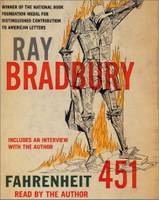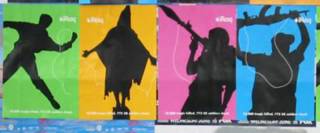If the INDUCE Act had been around for the
Betamax case, we wouldn't have the VCR.
Sorry the posting has been light lately. The reason is that I have been doing research on the INDUCE Act proposal. The question on copyright mavens' minds these days is of course, how will an inducement to infringe doctrine work in copyright? So far it all looks a bit scary, like maybe iPods and silly putty will end up being outlawed.
If you have been out of the loop, in the dark, not in the echo chamber of the blogosphere, and with your head the sand lately; then maybe you have not heard about the INDUCE Act. It is a bill that was introduced by Sen. Hatch this morning that proposes to add a new version of third party liability to the Copyright Act, one of "inducement to infringe a copyright."
The bill is touted as merely shuttling the patent law concept of inducement into the copyright law, thus "bringing copyright law up to date." But the fact is that copyright already has two versions of third party liability that, along with the "substantial noninfringing uses" doctrine from the
Betamax case, accomplish the same goals as the inducement doctrine does in patent law.
Since it is apparent that it would be pointless to enact a statute that has no effect on the Copyright Act, one must assume that the INDUCE Act will actually make some changes. We can tell what those changes are because of the INDUCE Acts stated aim - to kill off the P2P networks. In order to do so the induce doctrine in copyright law will have to utilize a general intent standard as opposed to the specific intent standard that the inducement doctrine in patent utilizes. It follows that any creator, manufacturer, or retailer of a device that is clearly capable of infringement may then be liable for inducement to infringe copyright, even without specifically intending to induce the direct infringements by others!
Say good bye to your iPods folks. Seriously, if law was around in the early 80's we wouldn't have been allowed to have VCRs. The INDUCE will eviscerate the doctrine of substantial noninfringing uses. Ouch!
Worst of all, in the longrun, this technology killing bill with impede competition and innovation in the tech sector of the economy. That effects all consumers. So while you may not sympathize with the P2P networks (I don't personally), that doesn't mean you should support the bill. We will all lose with this bill, ironically enough even the media industry will lose, as we saw with the VCR, young immature technologies can often be harnassed in such a way as to become money makers. We may never find out what the mature versions of some new technologies end up being though, because the INDUCE Act will kill them off in their infant stage or even before they are born (who's going to invest in tech capable of copying media after this?).
I'll have much more on this issue in the near future. And it will be less of a rant, I promise.
More on the INDUCE Act
here (plus the bill itself),
here,
here,
here, and
here.































 <
?
law blogs
#
>
<
?
law blogs
#
>
